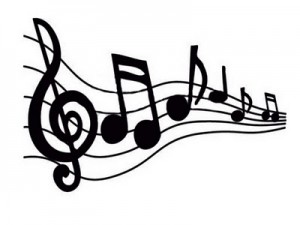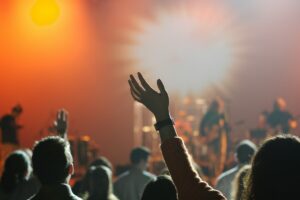 How to give your brain a total workout? Researchers at John Hopkins University say that listening to music will do it! Their published study says that music activates almost all brain regions and networks and helps to keep the myriad of brain pathways and networks strong, including those involved in well-being, learning, cognitive function, quality of life, and happiness. Music is structural, mathematical and architectural. It’s based on relationships between one note in the next. You may not be aware of it, but your brain has to do a lot of computing to make sense of it. It helps to recall memories.’ It can also change your mood for the better.
How to give your brain a total workout? Researchers at John Hopkins University say that listening to music will do it! Their published study says that music activates almost all brain regions and networks and helps to keep the myriad of brain pathways and networks strong, including those involved in well-being, learning, cognitive function, quality of life, and happiness. Music is structural, mathematical and architectural. It’s based on relationships between one note in the next. You may not be aware of it, but your brain has to do a lot of computing to make sense of it. It helps to recall memories.’ It can also change your mood for the better.
An outstanding demonstration of the power of music on the brain is on YouTube. It’s about Henry, 10 years a resident in a care home, unresponsive and generally not speaking, spending the day with his head on his hands, apparently sleeping. A carer had noticed the effect of music with a woman resident and thought it might work with Henry. She discovered that Henry liked “religious music” so she collected some Christian music and loaded an iPod. She placed the speakers over Henry’s ears and he immediately came alive. Head up, eyes wide open, he started singing and moving in time to the music.
Famous neurologist Oliver Sacks, (A brilliant man, now deceased) gives a commentary. He said that music had brought Henry back to himself –’ he’s found his identity.’ The effect continues after the music stops. Henry continues talking. He loves music, he says, music is from God. Then significantly he said, ‘the Lord came to me, made me a holy man.’ You can see it here (https://www.youtube.com/watch?v=fyZQf0p73QM).
In the book ‘Dementia from the Inside’ (me and Dr Jennifer Bute), there’s a story of how music ‘released’ a brain that was stuck. A resident Jennifer was visiting in her dementia inclusive village couldn’t get past saying, ‘the peas are green on Saturday’. Jennifer said, ‘no matter what I said, talking about other familiar things for her, the reply was always the same – a bit like a stuck gramophone record needle. I needed to find some way to move it on and nothing seemed to work. So I started singing a song from her childhood days and to my amazement she immediately joined in and we sang it together. When we stopped she smiled at me and asked me to repeat something I had said earlier. We know singing can help to tie up the loose ends in our brains or move on the stuck gramophone needle .’
 And better yet! A Harvard University paper noted that there is only one other situation in which you can activate so many brain networks all at once, and that is when you participate in social activities. It describes what happens in church every Sunday (and other days too!) and might explain why so many studies say that people who regularly attend a place of worship tend to live longer than others, and cope better with stress and other negative emotions.
And better yet! A Harvard University paper noted that there is only one other situation in which you can activate so many brain networks all at once, and that is when you participate in social activities. It describes what happens in church every Sunday (and other days too!) and might explain why so many studies say that people who regularly attend a place of worship tend to live longer than others, and cope better with stress and other negative emotions.
We see it working in our housing and care homes too. A manager told me about Joan, singing an old hymn in ‘devotions’, face aglow with meaning, although she had dementia. Afterwards she had forgotten, but for that moment she was caught up in a timeless, unbreakable union with God, enabled by the worship.
Churches with worship groups could visit their local care homes and play worship music to them. They don’t need to preach a sermon, just release the Holy Spirit through the music and the words. We appreciate the churches that support our care homes, and it’s mutual – they love our work!














